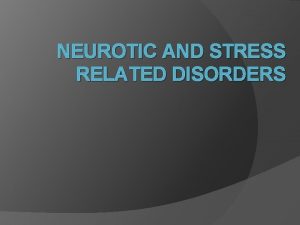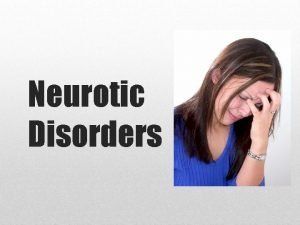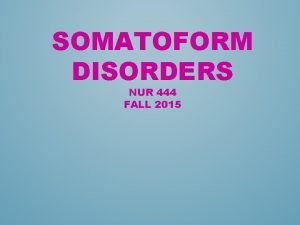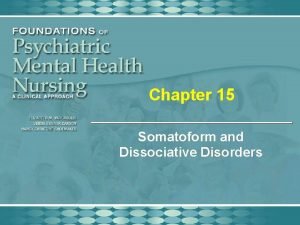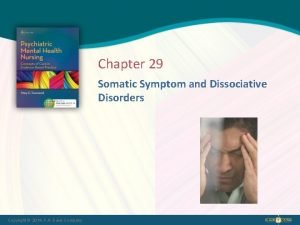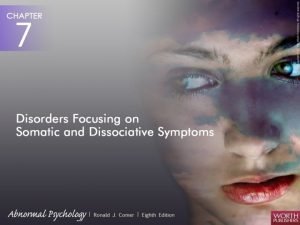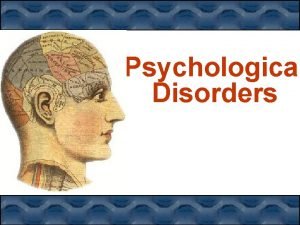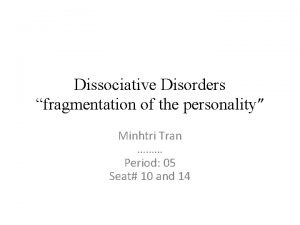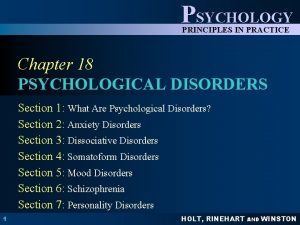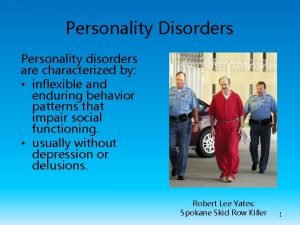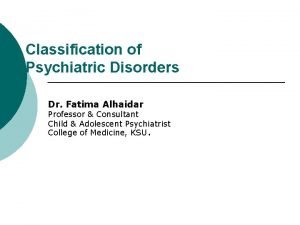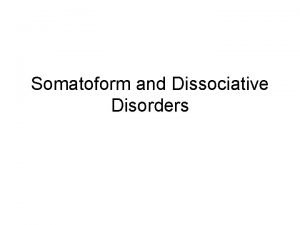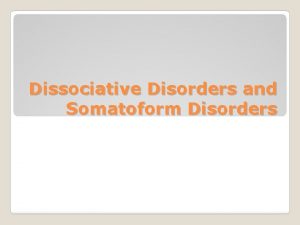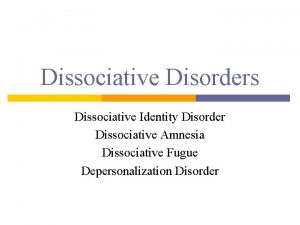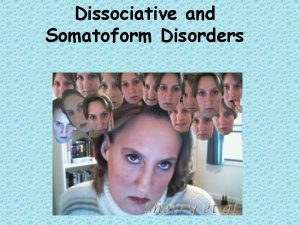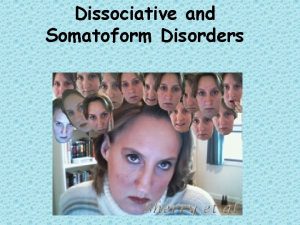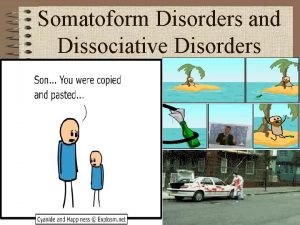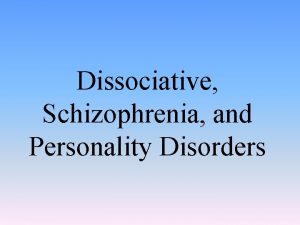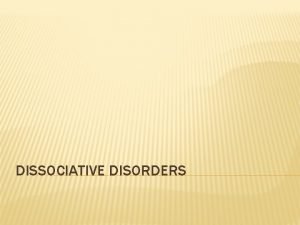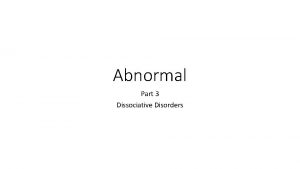Somatoform and Dissociative Disorders Psychological Disorders Somatoform Disorders










- Slides: 10

Somatoform and Dissociative Disorders Psychological Disorders

Somatoform Disorders � � � Somatoform disorders are physical ailments that have no authentic organic basis and that are due to psychological factors. Physical symptoms for which there is to apparent physical cause People with somatoform disorders typically seek treatment from physicians practicing neurology, internal medicine, or family medicine, instead of psychiatrists. Making accurate diagnoses of somatoform disorders difficult, because the physical ailments are sometimes hard to identify. Diagnostic difficulties make it hard to obtain sound data on the prevalence of somatoform disorders. 2 main types: Conversion disorders and Hypochondriasis

Hypochondriasis � Commonly known as hypochondria � Characterized by excessive preoccupation with health concerns and incessant worry about developing physical illness � Over interpret every conceivable sign of illness � Often appears alongside other psychological disorders such as anxiety and depression

Conversion Disorder � Characterized by a significant loss of physical function (with no apparent organic basis), usually in a single organ system � Changing emotional difficulties into a loss of a specific voluntary body function � Common symptoms include partial or complete loss of vision, hearing, partial paralysis, severe laryngitis, or mutism, and loss of feeling or function of limbs. � Results in a real and prolonged handicap

Etiology of Somatoform Disorders � Personality factors: People with histrionic personality traits (self-centered, suggestible, excitable, highly emotional, and overly dramatic) ◦ People like this thrive on the attention they get when they are ill � Cognitive Factors: Faulty standard of good health; equating health with a complete absence of symptoms and discomfort, which is unrealistic � The Sick Role

Video � TV examples of Somatoform Disorders � http: //www. youtube. com/watch? v=8 Vzhq. Kj 2 8 IY

Activity � In groups of 3 -4 read “Distinguishing Anxiety and Somatoform Disorders” � Discuss the situations as a group and make your preliminary diagnosis

Dissociative Disorders � Disorders in which people lose contact with portions of their consciousness or memory, resulting in disruptions in their sense of identity � No biological explanation � Very � Little rare is known about why this extreme reaction to stress occurs in a tiny minority of the population, but others can experience similar stress without the reaction

Dissociative Disorders � Dissociative amnesia: the inability to recall important personal events or information; is usually associated with stressful events � Dissociative fugue: a person suddenly and unexpectedly travels away from home or work and is unable to recall the past � Dissociative identity disorder: a person exhibits two or more personality states, each with its own patterns of thinking and behaving

A Question? � Besides anxiety, how might you realize that you are suffering from a somatoform or dissociative disorder?
 Neurotic, stress-related and somatoform disorders
Neurotic, stress-related and somatoform disorders Neurotic personality disorder
Neurotic personality disorder Somatic symptom disorder
Somatic symptom disorder Somatoform disorder
Somatoform disorder Somatic symptom disorder
Somatic symptom disorder Dissociative disorders
Dissociative disorders Types of dissociative disorders
Types of dissociative disorders Dissassociative amnesia
Dissassociative amnesia Chapter 18 psychological disorders review worksheet
Chapter 18 psychological disorders review worksheet Inflexible personality
Inflexible personality Neurosis vs psychosis
Neurosis vs psychosis
